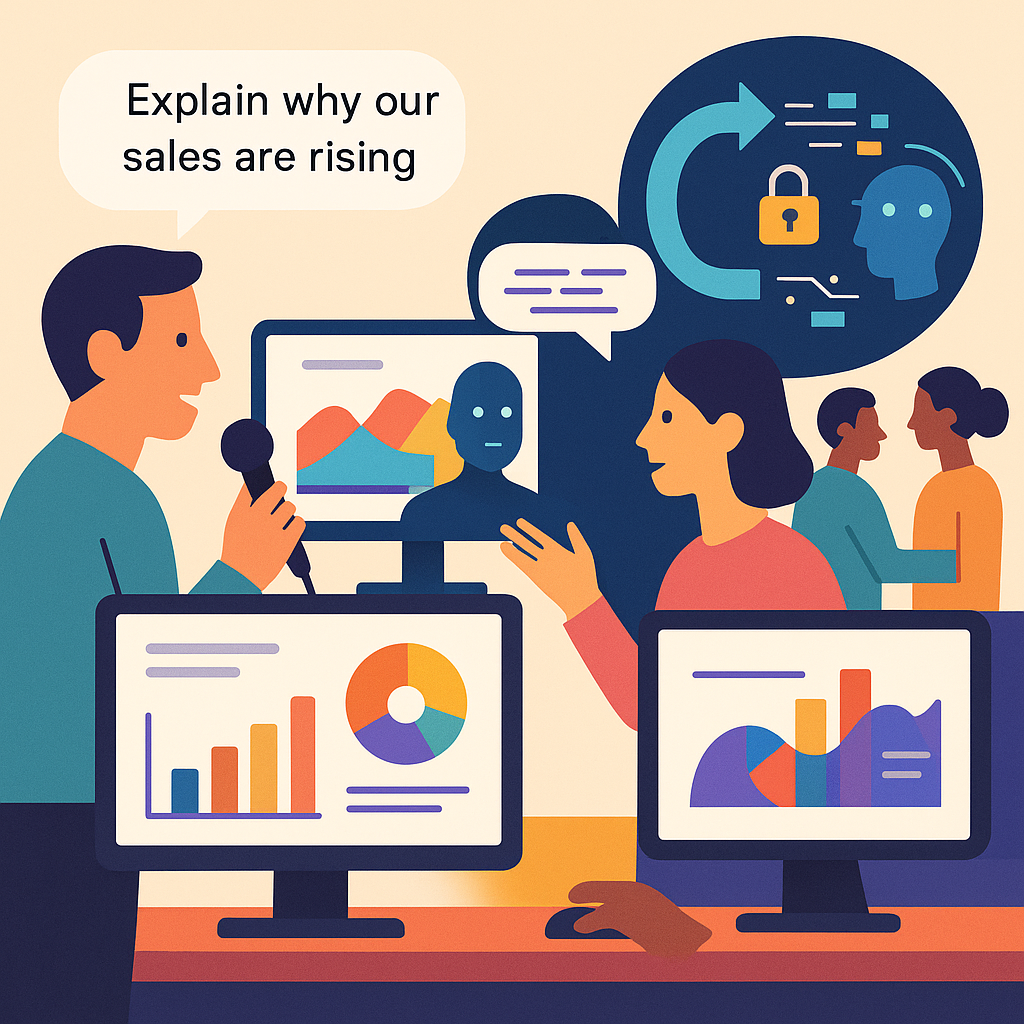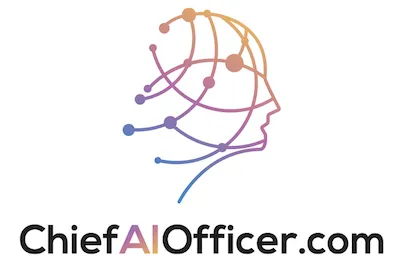
Generative BI: Transforming Business Intelligence with AI
Generative BI: Transforming Business Intelligence with AI
What is Generative BI?
Generative BI combines the power of generative AI with traditional business intelligence tools. It lets you ask questions about your data in plain language and get meaningful answers back without needing technical skills.
"The grand concept is to be able to talk to your data," explains Perez. "You can literally use a microphone on your computer and say, 'Hey machine, explain to me why my sales are going up' or 'Show me my sales for the last 12 months and project where they're going to go for the next six months.'"
This natural language approach makes data analysis accessible to everyone in your company, not just data scientists or analysts.
How Generative BI Works Without Exposing Your Data
One of the biggest concerns with using AI tools is data security. Many business owners worry about uploading sensitive company information to external AI systems.
Pyramid's approach solves this problem with what Perez calls their "Horseshoe" method:
You ask a question about your data
The system sends the question (not your data) to an LLM like GPT-4
The LLM creates a "recipe" for answering your question
Your BI system uses that recipe to query your data locally
The results are presented back to you
"The data actually can't move to the LLM," Perez explains. "We have to pivot the whole thing on its head. We describe your data to the LLM and ask it to come back to us not with the chocolate cake, but the recipe for the chocolate cake."
This approach keeps your data secure and works with datasets of any size - from a few thousand rows to billions.
Who Benefits Most from Business Intelligence?
While BI tools have traditionally been seen as enterprise solutions, businesses of all sizes can benefit from better data analysis. According to Perez, these three areas typically see the quickest wins:
Financial data: Accounting data is usually well-organized and clean, making it perfect for BI analysis.
Digital marketing data: If you're spending money on Google Ads, Facebook, or LinkedIn campaigns, BI tools can help you understand what's working and what's not.
Operational data: Your sales information, POS data, and transactions can reveal valuable insights about your business operations.
For smaller businesses, Perez notes that you need good quality data to benefit from BI tools. "If you come with garbage and put garbage in, you basically get garbage out," he explains.
The Future of Generative BI
Looking ahead to 2025, Perez predicts several developments in the generative AI space:
More affordable models: Current AI models are expensive to run at scale. We'll see smaller, faster, and more cost-effective models emerge.
Better mathematical capabilities: Future AI systems will handle complex calculations more effectively.
Wider implementation: More businesses will move from talking about AI to actually implementing it in specific applications.
Pyramid itself is working on even more advanced capabilities, including solving complex business formulations automatically.
Is Your Business Ready for Generative BI?
If you're wondering whether your business could benefit from generative BI tools, ask yourself:
Do you have a decent amount of data? (More than can be easily managed in spreadsheets)
Do you have complex business questions you want to answer?
Is your data relatively clean and well-organized?
If you answered yes to these questions, exploring BI tools might be your next step toward making better data-driven decisions.
FAQs About Generative BI
Q: Do I need to be a big company to benefit from business intelligence tools?
A: No, businesses of all sizes can benefit from BI tools. The key factor is having good quality data and complex business questions you want to answer.
Q: Will using generative BI expose my sensitive company data to AI companies?
A: Not with modern approaches like Pyramid's. Their system doesn't send your raw data to external LLMs - only descriptions of your data structure.
Q: How quickly can I implement a business intelligence solution?
A: With modern tools, basic implementation can happen in as little as 30 minutes. However, getting the most value may require some data preparation work.
Q: Do I need to move all my data to use these tools?
A: Not necessarily. Some BI platforms like Pyramid can connect directly to your existing databases without moving the data.
Q: What kind of questions can I ask with generative BI?
A: You can ask natural language questions like "Why did sales drop last month?", "Who are my top customers?", or "Predict my revenue for the next quarter."
Q: How accurate are the answers from generative BI?
A: The accuracy depends on the quality of your data. With good data, modern BI tools can provide highly reliable insights and predictions.

